Education plays an integral part in the development of children. It is essential to understand why you have to go to school and why you must attend classes. At…
continue reading
50+ Sample Meal Planners
-
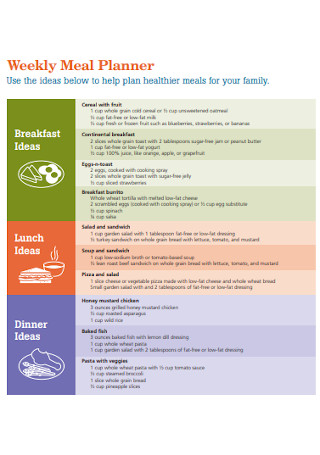
Weekly Meal Planner
download now -
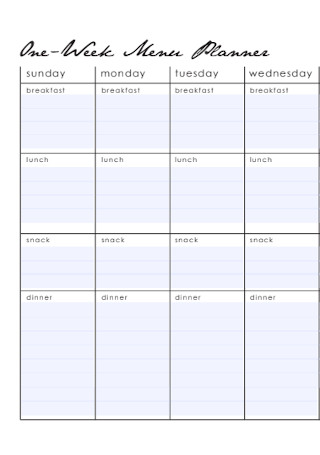
One-Week Menu Planner
download now -
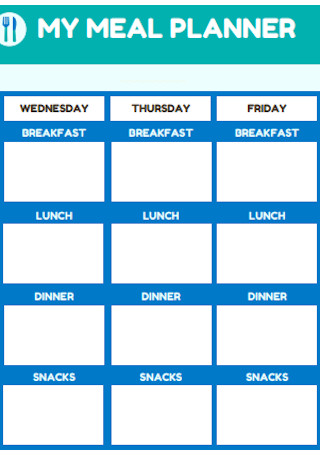
Sample My Meal Plan
download now -
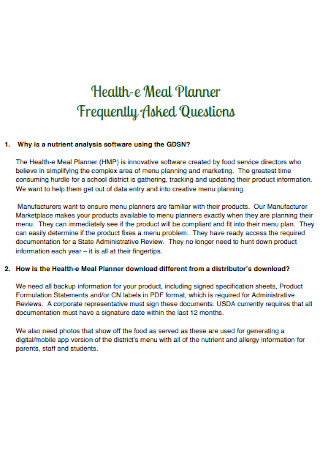
Health-e Meal Planner
download now -
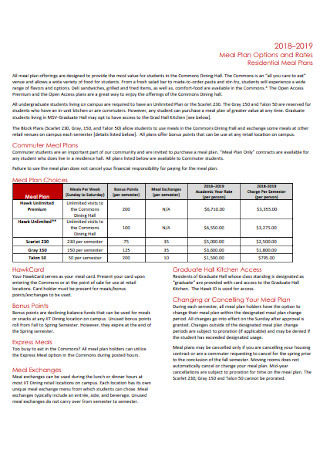
Residential Meal Planner
download now -
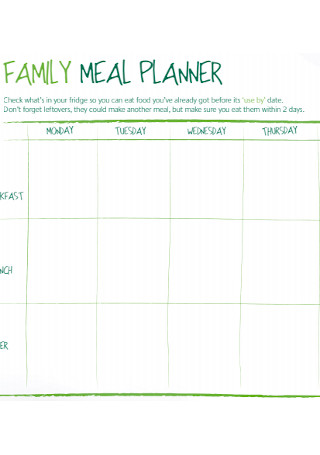
Family Meal Planner
download now -
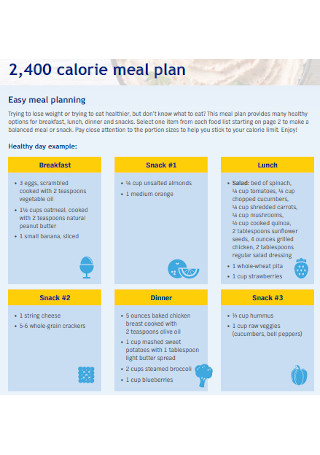
Meal Calorie Planner
download now -
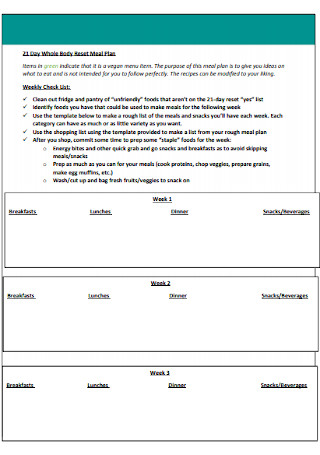
Whole Body Reset Meal Planner
download now -
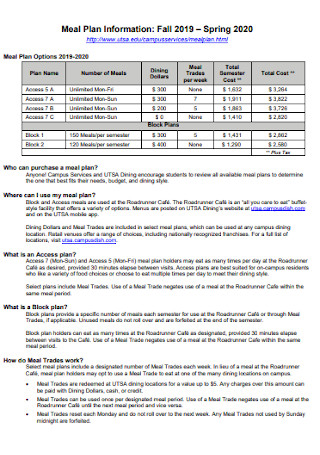
Campus Meal Planner Template
download now -
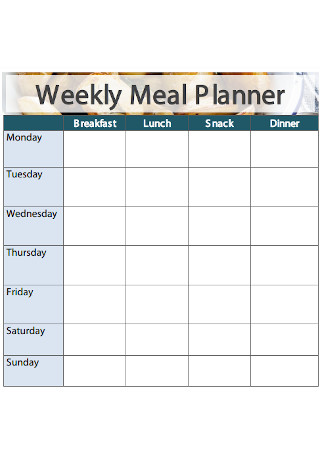
Sample Weekly Meal Planner
download now -
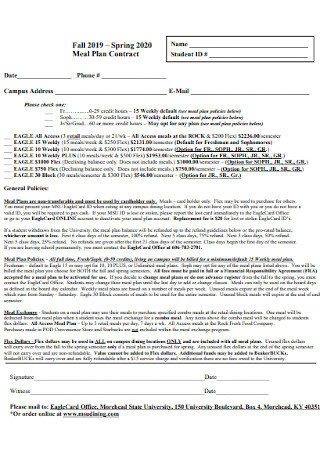
Meal Planner Contract
download now -
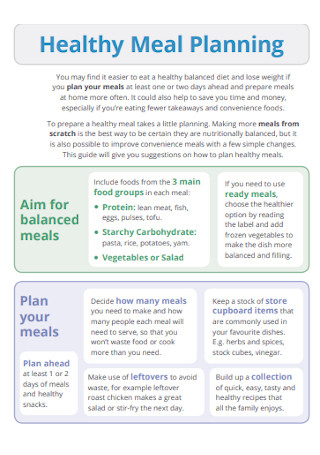
Healthy Meal Planning Template
download now -
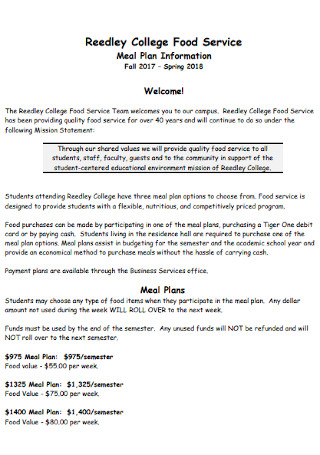
College Food Meal Planner
download now -
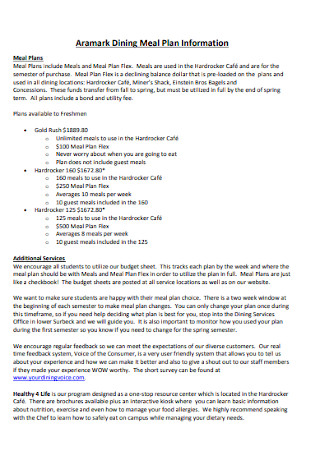
Dining Meal Planner
download now -
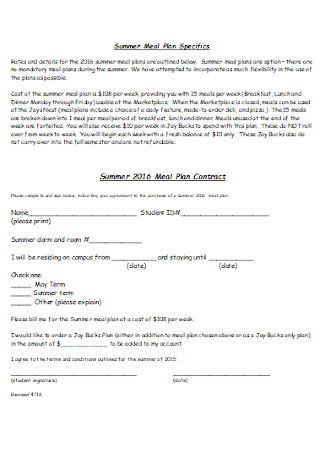
Summer Meal Planner
download now -
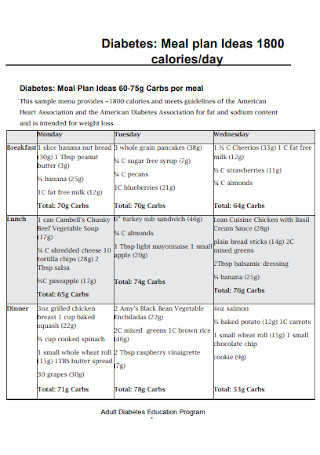
Meal plan Ideas Template
download now -
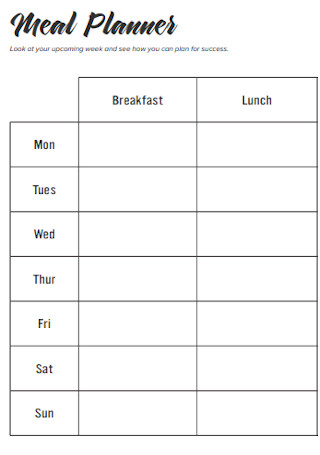
Simple Meal Planner
download now -
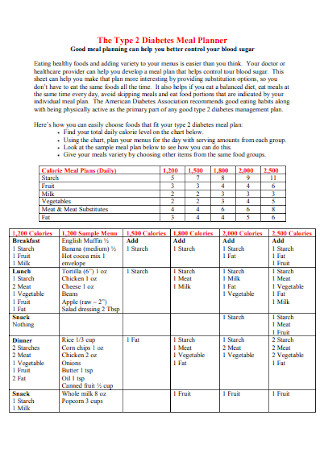
Diabetes Meal Planner
download now -
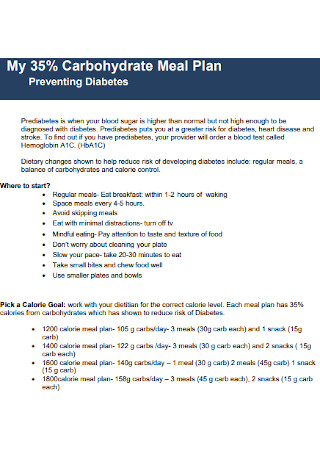
Carbohydrate Meal Planner
download now -
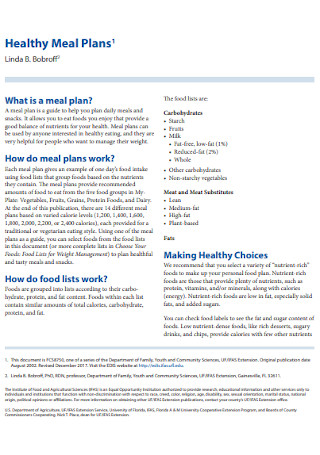
Healthy Meal Planner
download now -
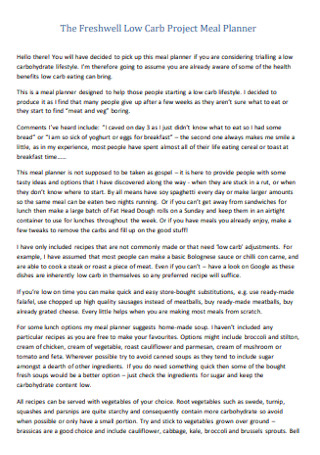
Carb Project Meal Planner
download now -
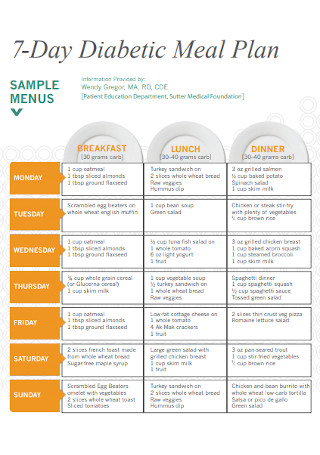
Seven Day Diabetic Meal Planner
download now -
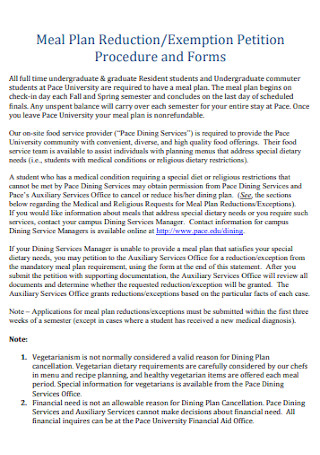
Meal Plan Reduction Template
download now -
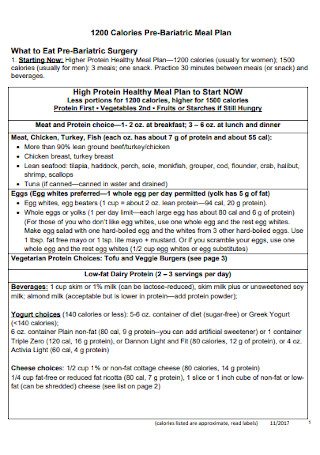
Calories Pre-Bariatric Meal Planner
download now -
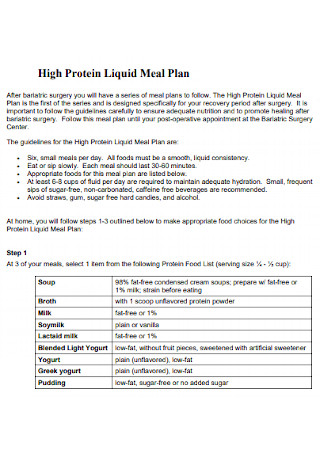
High Protein Liquid Meal Planner
download now -
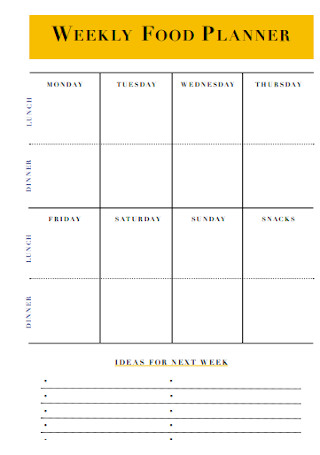
Weekly Food Planner
download now -
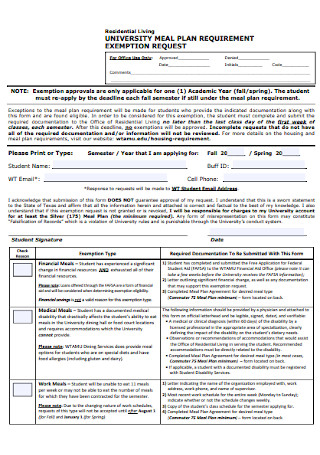
University Meal Plan Template
download now -
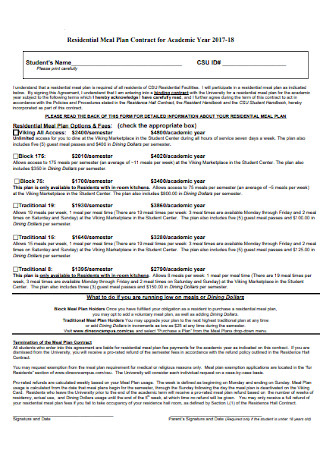
Meal Planner Contract for Academic
download now -
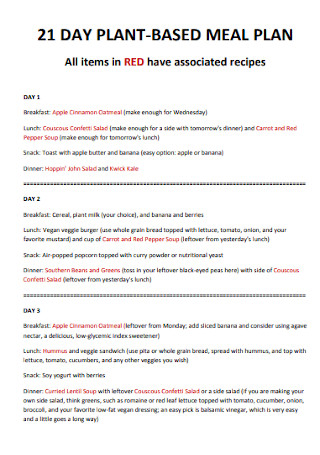
Day Plant Meal Planner
download now -
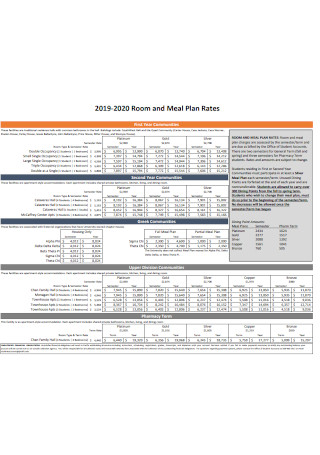
Meal Planner Rates Template
download now -
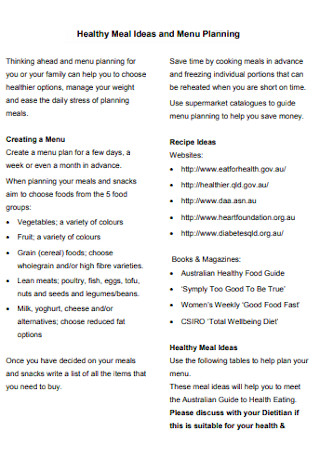
Healthy Meal Ideas Planner
download now -
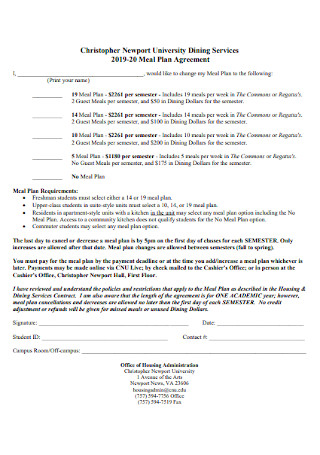
Meal Planner Agreement
download now -
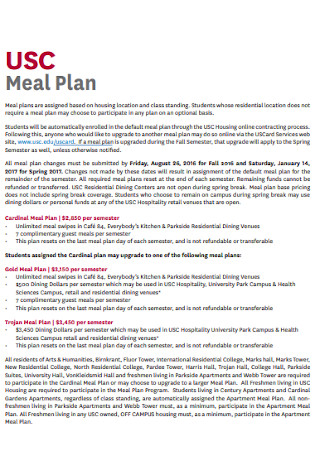
Simple Meal Planner Template
download now -
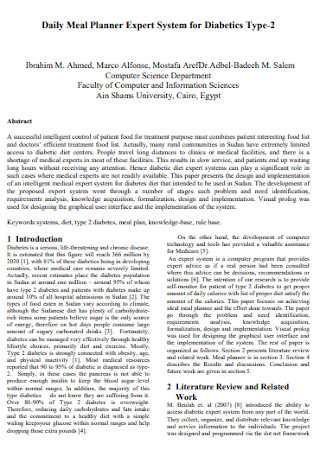
Daily Meal Planner
download now -
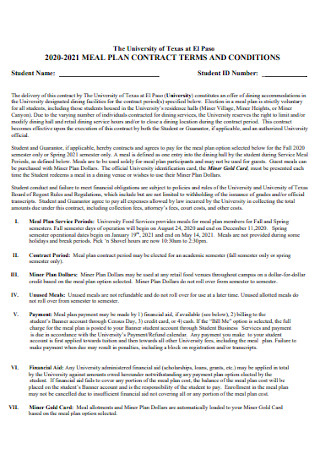
Meal Planner Contract
download now -
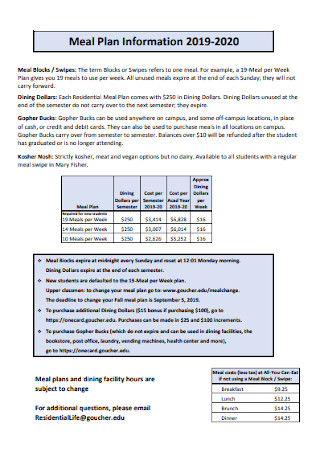
Meal Planner Information Template
download now -
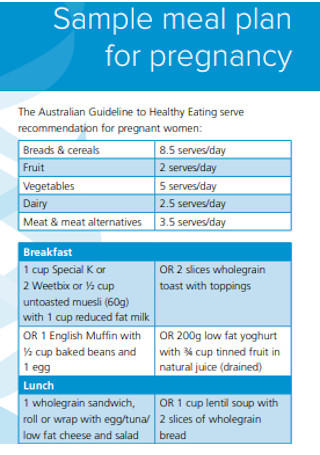
Sample Meal Planner for Pregnancy
download now -
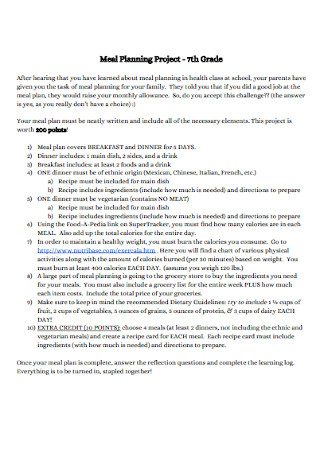
Project Meal Planner Template
download now -
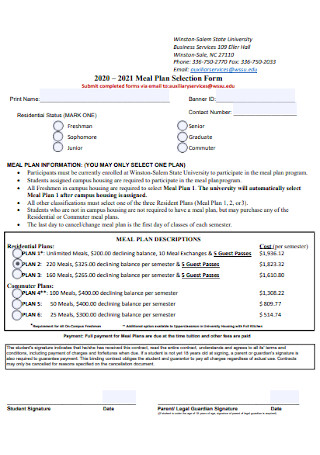
Meal Planner Selection Form
download now -
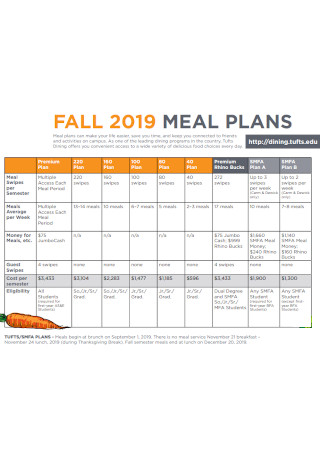
Fall Meal Planner
download now -
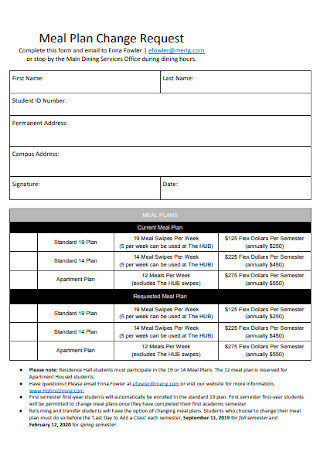
Dining Meal Planner Template
download now -
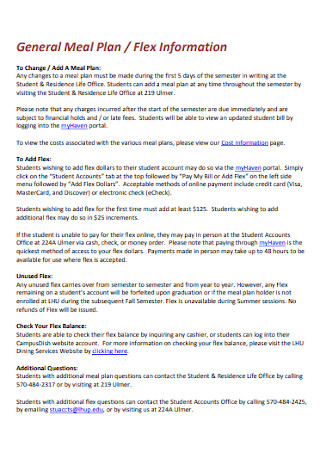
General Meal Planner Template
download now -
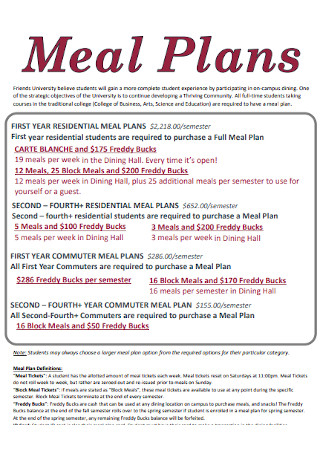
Formal Meal Planner Template
download now -
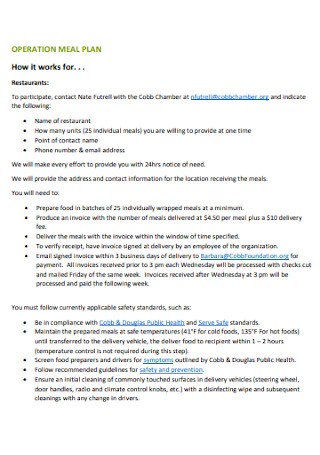
Operation Meal Planner
download now -
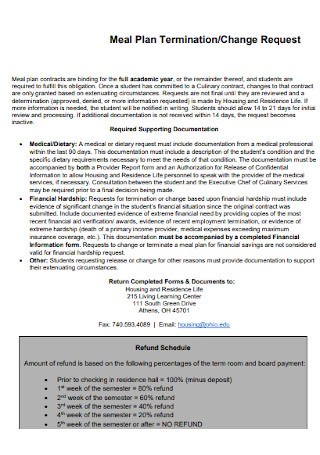
Meal Planner Termination Template
download now -
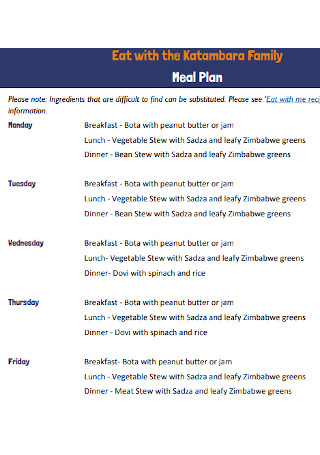
Family Meal Plan Template
download now -
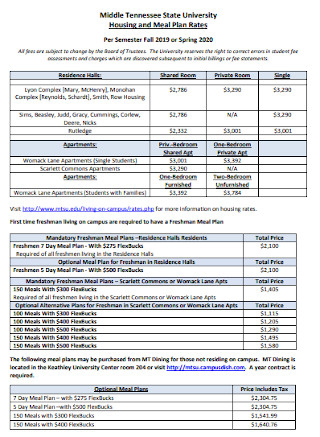
Housing and Meal Planner
download now -
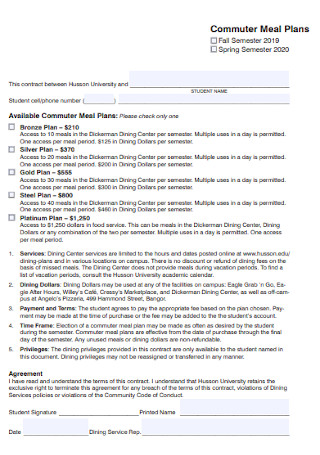
Commuter Meal Planner
download now -
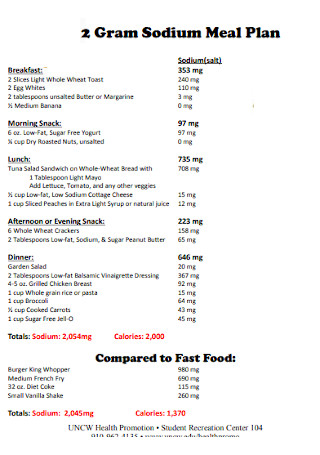
Two Gram Sodium Meal Planner
download now
What Is a Meal Planner?
A meal planner associates with meal planning and a food diary as it shows the selection of food a person eats within a day, week, month, and even a year. In a meal planner, choosing specific foods to help maintain the recommended intake of calories per meal. The meal planner shows the particular foods and meals up for consumption during breakfast, lunch, and dinner, with some providing snacks. Most meal plans consist of meal planning, taking the time to find the perfect selections for each person depending on their dietary needs. Meal planners are perfect for any kind of person that wants to commit their time and energy to have well-proportionate meals.
According to a statistical study conducted by Statista published in November 2020, 42 percent of Americans try to plan their meals for the next few days. About 29 percent of respondents say they plan out their meals for the week, and the remaining 29 percent typically don’t plan and go one day at a time. By the data, most U.S. consumers plan out their meals for the coming days.
Components of a Meal Planner
The elements in a meal planner vary depending on the person’s preference. Various meal plans are present, and they are under the influence of several factors. Remember, those essential components of a meal planner must always be visible. Here are the parts that should be present in any meal planner.
How to Create a Meal Planner
Whether the goal is to cut down on weekly expenses, to eat and get healthier, or to be more organized, the solution is to set or create a meal planner. It is favorable to learn to create a personal meal planner, especially if the individual has set goals or caters to several family members. A person’s lifestyle and preferences are taken into consideration to reduce costs and food wastes.
Step 1: Review the Meal Schedule
Before planning the meals and the recipes to make, you need to figure out the days you need to cook. It helps determine the meals to prepare for the following days. It allows the individual to find the times of the day to create a simple appointment schedule to cook the meals. The trick is to plan out and set a calendar to follow, so the plan is more likely to get done. It is also essential to start small. Schedule to prepare a meal at least once a day for the first week, and continue to make another the following week. Finding balance in the arrangement is the starting point to any meal plan.
Step 2: Find a Selection of Recipes
The internet gives a variety of recipes depending on the person’s preference. However, choosing which meal to make is a difficult task if there are too many options. To help with decision-making, remember the time and style for cooking the meal. Make sure that there is ample time to make the meal. Also, ensure that all ingredients are readily available. Check the refrigerator and pantry and choose a meal that has the required components. Ideally, a variety of recipes allows a person to know easy to prepare meals and in-season ingredients. The ideal meal stems from an individual’s taste and lifestyle.
Step 3: Select and List a Theme for Meals
Once there is a selection of the meal, it is helpful to set a theme for the day. Picking out a specific theme for each day incorporates variety into the meal plan schedule. Select a meal from the list of recipes and include them on the particular day that matches the theme for the day.
Step 4: Create a Comprehensive Grocery List
In creating the grocery list, ensure to note down the number of ingredients for each recipe. Before going to the store, check the supply at home and cross out the ingredients already available. It helps save money and avoid unnecessary purchases. It also allows the individual to check on supplies and items that need restocking. Afterward, the remaining items on the list are the groceries to be bought at the supermarket.
Step 5: Purchase the Items on the List
A short and comprehensive inventory of ingredients allows an individual to purchase quicker and easier at the market. It is also convenient to recognize the precise location of items to avoid looking through different sections. In doing these steps, it is easier to avoid impulse buys and keeps costs low.
FAQs
What is the importance of having a meal planner?
Planning your meals ahead of time makes a big difference in achieving your goals. Meal planning helps improve overall health, helps lose weight, and reduces stress. Planning monthly and even weekly meals helps manage time better. In preparing and organizing meals, you reduce last-minute grocery shopping and unnecessary travel to the supermarket. If the reason for having a meal planner is weight loss, then proportioning your meals helps achieve that goal and reduce overeating. Planning meals also reduce food wastes by only buying what is necessary for a specific meal, decreasing what ends up in the disposal. Rids of unnecessary stress when trying to cook healthy and nutritious meals at the last minute. Aside from saving time, it saves you money. Preparing the next meal in the plan is simpler by minimizing impulse buying unnecessary groceries at the store through the guidance of a meal planner. It also helps to cut down the costs of takeaway and delivery of fast food. Aside from the expensive value, fast food is a considerably unhealthy option. These types of food have higher calorie and sodium content than the average recommended daily allowance. Being tired and hungry leads to poor food choices, so it is critical to have healthy meals on the go. Lastly, the meal planner provides a wide variety of dishes. Plus, the meals you set for yourself and your family cater to everyone’s taste and style.
Is breakfast the most important meal of the day?
The most important meal of the day often pertains to breakfast. The name breakfast comes from ‘breaking the fast’ from the night prior. Despite the many benefits of breakfast relating to health and well-being, plenty of individuals still skip it. Breakfast is essential as it replenishes the supply of energy in the body in the form of glucose. It keeps you alert and boosts your energy levels throughout the day. It raises your glycogen levels that enable a faster metabolism process. Most breakfast foods provide the essential nutrients and vitamins for the day and people who eat in the morning are more likely to meet the daily intake requirements of vitamins and minerals compared to people who don’t. People who regularly eat breakfast are also less likely to become overweight or obese. Studies show breakfast helps control weight because it prevents large fluctuations of glucose levels, and it fills you up before becoming very hungry, and is less likely to grab for snacks. Not eating breakfast affects mental performance, including attention, concentration, and memory activities. It makes you feel sluggish and struggle with daily tasks. Breakfast is the most critical for children and adolescents because it gives them the energy to perform better academically, connect with teachers and peers, resulting in positive health and academic excellence. People who eat breakfast reduces the risk of illnesses and health conditions, including obesity and diabetes. Lastly, people who have breakfast have healthier diets, better-eating habits, and less likely to hunger for snacks during the day. Snacking is a problem when the food choices are low in fiber, vitamins, and minerals but high in fat, sugar, and salt. Instead of skipping breakfast altogether, try a healthy and nutritious snack like fresh fruits and vegetables, yogurts, oats, whole grain bread, and even boiled egg.
Do you have to sacrifice your health for the budget?
Plenty of studies over the years show that less expensive items are not always the healthiest. Most people often associate healthier food and ingredient options with being costly. Some consumers are willing to pay more if it means that they are getting a better choice. Other consumers also opt for ingredients and food products that are of local production and are sustainable. Nowadays, plenty of producers locally and internationally offer products based on the public’s demand in providing healthier choices for an affordable price.
What makes a good meal?
A good meal is healthy and nutritious, but how do you classify if the said meal follows. A meal must follow the principles of adequacy, balance, calorie control, nutrient density, moderation, and variety. Sufficient meals are essential to provide all essential nutrients, fiber, and energy in amounts that support optimal growth, development, and health. A healthy diet must have a balance of all food groups, energy sources, and other nutrients. A balanced diet is the amount of energy you eat, equating to the expenditure in daily activities. The key to choosing the ideal food or ingredient depends on the number of calories the body uses to sustain active metabolism and daily activities. The nutrient density of food significantly impacts its quality and health benefits. Nutrient-dense food provides an abundant amount of vitamins and nutrients with lesser calories. Moderation does not mean eliminating low-nutrient food but rather including them on certain occasions. Meanwhile, variety means including different kinds of food in the diet and each food group. Variety adds interest and excitement to meals while preventing bland and repetitive dishes.
Meal planning is an enjoyable and exciting activity if an individual is passionate about reaching a healthier lifestyle. It is the motivation to become better not just physically but also mentally and emotionally. Food affects our lives in more ways than just preventing hunger. It helps people to be more active in production, comfortable in their mental health and accommodating of interactions with others. There is no easy way to plan meals without the individual’s active motivation. In the words of Thomas A. Edison, “I have not failed. I’ve just found 10,000 ways that won’t work.”. It takes time to plan meals, and you can start your journey into a healthier life by using our meal planner samples found above.

